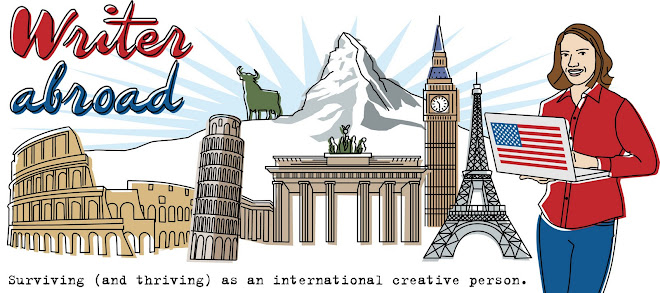How to be more
productive? New research says we should relax.
Not surprisingly, this
new research on relaxation and productivity is American research. Europeans
don’t need to research relaxation because they already practice it. Most
European cultures already encourage things like long lunches and substantial
vacation time.
Relaxation is so
important to Europeans, that Writer Abroad has had her attempts at doing it
criticized by her European colleagues:
 |
| Relax. You'll get more done. |
“You’re only taking
two weeks off and going to three Spanish cities? How will you have time to relax?”
One Swiss colleague in
particular enjoys reminding Writer Abroad when it is noon and she is still at
her desk instead of at lunch:
“Lunch break, it’s
noon,” he’ll say, picking up his coat at 11:59 so he’s out the door exactly at
noon and not a minute later.
Later, maybe 15
minutes later, Writer Abroad finally goes out too.
Of course, to an
American, an hour for lunch or two weeks for one vacation is practically a
lifetime. Exactly why they need to begin putting their newfound research into
practice.
According to a recent
article in The New York Times, Relax! You’ll be more productive, which
discussed this new research on relaxation, we should incorporate things like
daytime workouts, short naps, and longer, more frequent vacations into our
lives if we want to get more done.
It also stressed the
advantages gained from working in periods that last no more than 90 minutes.
If you need help
putting the 90-minute work period into practice, have a baby. As Writer Abroad
has previously written, having a baby can actually make you a more productive writer.
This 90-minute concept
is exactly why.
In fact, Writer Abroad
has been using this technique for the last year and a half—working during Baby
M’s naptimes, which, coincidentally, means about two 90-minute periods per day.
Just enough to pretty much get everything done she needs to get done and still
have enough energy leftover to relax—or read Goodnight Moon 999
times.



